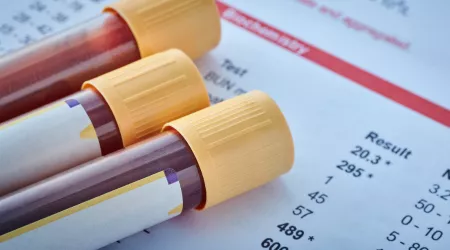Is colorectal cancer preventable with screening?
Colon cancer and rectal cancer affect people of all ages, ethnicities, and lifestyles — no one is immune.
Yet we have a powerful defense against this disease: screening. With screening — the process of detecting cancer or precancerous growths in the colon or rectum (known as polyps) — colorectal cancer is one of the most preventable of all cancers.
In fact, some experts believe an uptake in screening over the past couple of decades has contributed, at least in part, to declining incidence rates of colorectal cancer in older adults.
The fact is, routine screening is recognized as the most effective way to reduce risk, and the United States Preventive Services Task Force says screening should begin at age 45 for average-risk individuals.
So how do screenings prevent colorectal cancer?
That’s a matter of polyps and timing.
The development of colorectal cancer can take about 10 years, though some people may experience faster or slower growth.
Most colorectal cancers begin as a polyp. While most polyps are harmless, a small fraction could develop into a precancerous condition and then cancer.
Before these polyps have time to become cancerous, polyps of any nature can be spotted and removed during a colonoscopy.
If a doctor removes a polyp that had the potential to become cancerous if left to grow, then he or she may have prevented colorectal cancer.
In addition to colonoscopy, a variety of screening methods exists to determine whether an individual has a precancerous condition or cancer, though these tests have different sensitivities.
The stool DNA test from Cologuard can detect evidence of the highest risk of pre-cancers and early cancer using both blood and DNA analysis. A fecal immunochemical test or FIT test analyzes blood in the stool. If precancer or cancer is detected in either of these options, a doctor will order a colonoscopy for further evaluation.
Unfortunately, millions of Americans skip screening and pass on a crucial opportunity to find and treat precancerous conditions or early cancer. It is critical to identify cancer in an early or local stage before it spreads and becomes more difficult to treat.
Patients have a 91 percent five-year survival rate when colorectal cancer is found at an early stage but just a 15 percent when cancer is found in an advanced stage and has spread to distant organs.
Want to get screened?
Great! Your doctor can tell you when to begin screening, which tests you can use, and how often you should be screened. Indeed, timely detection and removal of precancerous growths can prevent colorectal cancer.
You can also take our free screening quiz to receive a personalized recommendation based on your risk factors at quiz.getscreened.org.
Top resources

Legislation introduced to address young-onset CRC
Explore the urgent need for the Colorectal Cancer Early Detection Act (HR 7714), legislation aimed at combating the rising incidence of colorectal cancer among younger adults through enhanced screening, education, and research.

Dak Prescott joins Alliance to ‘LEAD FROM BEHIND’
Initiative aims to reduce stigma and educate about screening choices, as the Colorectal Cancer Alliance launches a health equity fund to decrease disparities.

Act now to create a coverage pathway for future blood-based detection
On the horizon are blood tests that have shown the ability to detect a variety of cancers including colorectal and rare cancers. Though these tests are still in development and are not yet approved by the FDA, clinical trials have shown impressive results.





